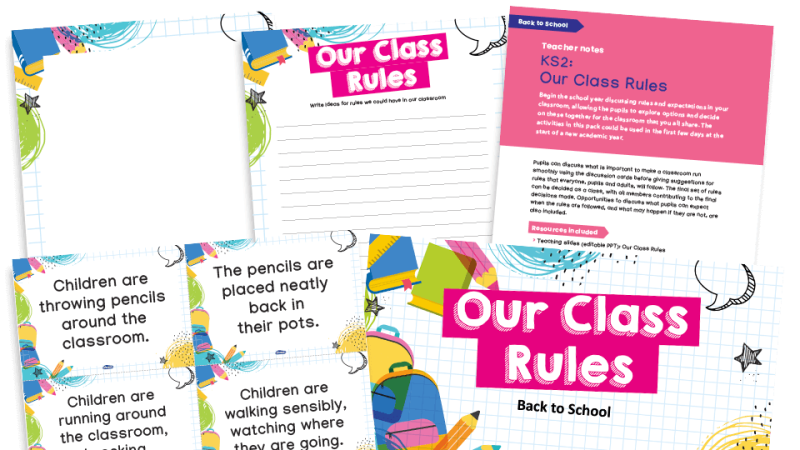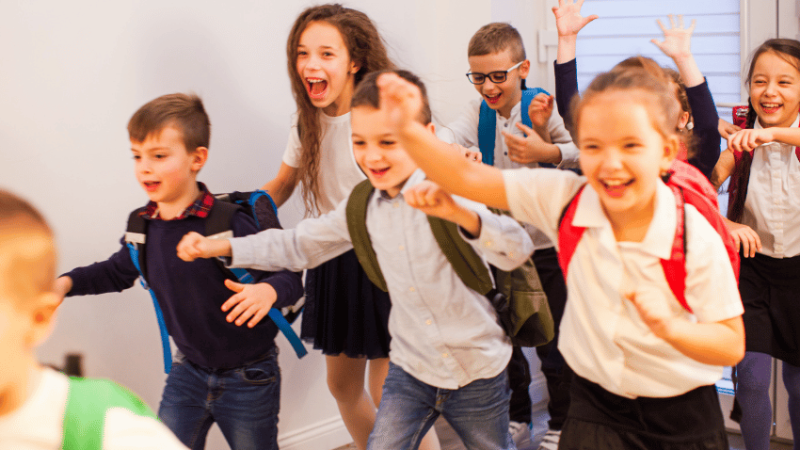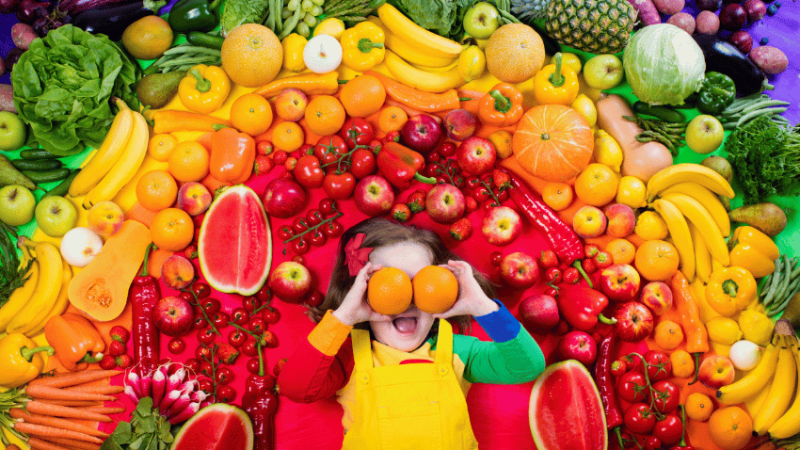Mental Health Awareness Week – Take a strength-based approach to transition

Support all pupils through tricky periods with this six-step plan…

What is Mental Health Awareness Week?
Mental Health Awareness Week 2023 is taking place 15 to 21 May, and the theme is anxiety. It is run by the Mental Health Foundation.
How to cope with change
Helping young people cope with change has never felt more important or demanded such a lot from educators.
Change is an inevitable part of life, and it can provide opportunities to develop resilience, optimism and adaptability.
For those with SEND, existing anxiety, limited home support, possibly those with transient backgrounds change at the best of times can be overwhelming.
Feelings of stress, anxiety and overwhelm are common.
Supporting all students
The six principles of nurture are needed throughout the year to support all pupils, though especially those who are more vulnerable.
The principles are:

- We understand learning developmentally. As our understanding of neuroscience increases, so does our understanding that young people develop, socially, emotionally, physically and intellectually at different rates. So we need to work with them as they are, which increases their sense of safety and security.
- Environment offers a safe base. Classrooms should be a safe place with reliable and consistent adults, structure and routine.
- Nurture is important to wellbeing. Listening and responding appropriately, as well as showing young people they are valued, is essential.
- Language is a vital means of communication. It is vitally important for young people to have a voice, have space to express themselves in their actions and words, and be listened to.
- All behaviour is communication. We need to understand the feelings and needs that children are expressing. Transition can be a time of challenging behaviour.
- Transitions are important in young people’s lives. There are multiple transitions in all our lives and these principles can support young people day in, day out.
School transition
All children need us to pay additional attention to their wellbeing and mental health. Especially during the end of one school year and the start of another.
Pupils may be feeling happy and recognise the success and achievements of the year that has passed, but they may also be feeling overwhelmed, anxious and stressed.
Feelings and emotions (and therefore behaviour) can be wildly varying from excited, to curious, to nervous.
Giving all pupils a character-strength-based vocabulary can help them recognise the strong points that they have already developed, and how these can support them in their next phase of life.
Want two Premier League Footballers to join your classroom on Friday 19th May?

Our last session featured over 1,000 students who joined from around the globe to chat to Liverpool FC star Fábio Carvalho and Fulham FC Captain Tim Ream.
To celebrate Mental Health Awareness Week (15th-19th May), Amazing People Schools and Virtual Soccer Schools are offering students the chance to take part in another incredibly exciting LIVE online Q&A session with two top-level Premier League superstars.
Your students will get the chance to talk to directly to the players about how they deal with anxiety, pressure and failure at the highest level.
Plus, use our extra special resource in the classroom afterwards to further cement their understanding of using character strengths to support their own mental health.
See the video below for a sneak peek into what the sessions entail:
Sign your school up here.
Focus on strengths
Here are some examples of how an understanding of character strengths can support transition and mental health:
Adaptability
Use a positive affirmation, such as ‘I am flexible. I can adapt my feelings, thoughts and actions to suit the situation’.
By developing our adaptability, we learn to adjust to different situations. This helps us grow our confidence to deal with uncertainty and unfamiliarity.
Therefore, explicitly teaching students about adaptability – perhaps finding examples in role models and stories – can provide a useful tool for dealing with change.
Creativity
‘I can think differently. I can see the world in new ways, making unusual connections’.
There are myriad studies on how being creative is good for our wellbeing and mental health.
A recent BBC Arts study of 50,000 people found that even minimal creative activity boosts positive mental health and helps people manage their emotions, build confidence and explore solutions to problems. This is regardless of the level of skills involved.
We also know that developing our imagination through art, music or other creative subjects releases ‘feel-good’ chemicals such as dopamine and endorphins.
In addition, creative thinking allows us to find new solutions to tricky problems.
Difficult situations are always going to arise; how great to offer a means of finding solutions to them!
Open-mindedness
‘I enjoy difference and am open to different people and ideas. I consider different options before making a decision’.
This is such a key area when thinking about transition and the new year ahead.
Learning that taking time not to judge and label others actually boosts our happiness and results in better quality friendships in an invaluable life lesson.
Resilience
‘I can keep going and bounce back from setbacks’. Being resilient and bouncing back from difficulties and not being stressed by them, changes how we feel.
Resilience can also reduce the impact of past negative experiences.
Transitions are important and unavoidable in young people’s lives. Giving them a toolkit of strengths helps them navigate change successfully.
Selena Whitehead has 25 years’ experience in education, both in the UK and overseas. She is a qualified citizenship teacher and worked as a supply teacher across primary and secondary schools in York.











